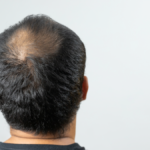Your at-home skincare routine plays a pivotal role in pursuing radiant, glowing, great-looking and healthy skin! From the products you use to the habits you adopt, every decision can impact the health and appearance of your largest organ.
However, navigating the vast array of advice and products available can take time and effort. To help you achieve your skincare goals, here is a comprehensive guide to the essential dos and don’ts of at-home skin care.
The Dos
Know Your Skin Type
Understanding your skin type is fundamental to crafting an effective skincare routine. Whether you have oily, dry, combination, or sensitive skin, tailor your products and regimen accordingly.
If your skin has a consistent shine, you probably have oily skin. If your skin feels tight, flaky, or has scales, you probably have dry skin. If your shine is in your T-zone, you probably have combination skin, and if your skin feels well-hydrated and comfortable without any excess oiliness, you probably have normal skin.
Cleanse Gently
Cleansing is essential to help remove makeup, dirt, oil, and impurities from your skin. Opt for a gentle, pH-balanced cleanser that won’t strip away your natural oils or disrupt your skin’s barrier. If your skin feels rough, looks dull, or is experiencing breakouts, you may be using the wrong cleanser, causing more damage than doing good.
Hydrate Adequately
Hydration is vital to maintaining skin health and elasticity. Use a lightweight, non-comedogenic moisturiser to replenish moisture without clogging pores, and consider incorporating hydrating serums or facial oils into your routine for an extra boost. Yes, this includes drinking enough water throughout the day, too!
Apply Sunscreen Daily
Sunscreen is your skin’s best defence against premature ageing, sunburn, and skin cancer. Apply a broad-spectrum sunscreen with SPF 30 or higher daily, rain or shine, and reapply as needed, especially if you spend extended periods outdoors.
Exfoliate Regularly
Exfoliation helps slough off dead skin cells, revealing smoother, brighter skin underneath. Incorporate a gentle exfoliant into your routine 1 to 3 times per week, depending on your skin’s tolerance, to promote cell turnover and prevent clogged pores.
Use Antioxidants
Antioxidants, such as vitamins C and E, help protect the skin from environmental damage and neutralise free radicals (free radicals are unstable atoms that can damage the cells in the body). Look for serums or moisturisers containing antioxidants to boost your skin’s resilience and radiance.
Practice Consistency
Consistency is key. Establish a daily regimen and stick to it, giving your skin time to adjust and reap the benefits of your chosen products. There is no time to knit one slip one if you want to see results.
Stay Hygienic
Keep your skincare tools and products clean to prevent bacterial growth and breakouts. Wash your hands before applying products, regularly clean makeup brushes and applicators, and promptly replace expired or contaminated products.
The Don’ts
Over Cleansing
While cleansing is crucial, overdoing it can strip the skin of its natural oils and lead to irritation and dryness. Avoid harsh cleansers or excessive scrubbing, and limit cleansing to twice daily unless recommended by a dermatologist or aesthetician.
Dropper Misusage
Avoid touching it directly to your skin when using a dropper for your serum or moisturiser to prevent bacterial contamination. Even after cleansing, your skin retains beneficial bacteria that can transfer to the product. This can exacerbate acne or other bacterial skin issues. Instead, drop the product onto your skin from a distance of at least 1 cm to minimise the risk.
Skipping Sun Protection
Neglecting sunscreen is one of the most common skincare mistakes. UV rays can cause irreversible damage to the skin, including premature ageing and an increased risk of skin cancer. Make sunscreen a non-negotiable step in your daily routine.
Picking At Your Skin
Picking, squeezing, or popping pimples can worsen inflammation, spread bacteria, and lead to scarring. Yes, resisting the urge to pick at your skin is tough but important! When the urge or a pimple arises, treat it with targeted spot treatments or consult your dermatologist or aesthetician for professional extraction if needed.
Overlooking Ingredient Labels
Not all skincare ingredients are created equal. Avoid products containing harsh chemicals, fragrances, or known irritants that can exacerbate skin conditions or cause allergic reactions. Familiarise yourself with ingredient labels and choose products formulated with gentle, skin-friendly ingredients.
Neglecting Moisturisation
Even if you have oily or acne-prone skin, skipping moisturiser can backfire. Without adequate hydration, the skin may overcompensate by producing more oil, leading to clogged pores and breakouts. Opt for lightweight, non-comedogenic moisturisers suited to your skin type to maintain a healthy moisture balance.
Sleeping With Makeup On
We have all been found guilty of this, but you must find the extra strength to remove your makeup before bedtime. Sleeping with makeup on can clog pores, trap bacteria, and prevent the skin from effectively repairing and renewing itself overnight. Remove makeup thoroughly before bedtime using a gentle cleanser or makeup remover to keep your skin clear and healthy.
Disregarding Professional Advice
While at-home skincare can be effective, certain skin concerns may require professional intervention. If you’re struggling with persistent acne, rosacea, or other skin issues, don’t hesitate to seek guidance from a dermatologist who can provide personalised treatment recommendations.
To Summarise
Prioritising a balanced, consistent at-home skincare routine is essential for maintaining radiant, glowing, great-looking, healthy skin. By following these dos and don’ts, you can optimise your regimen, address common pitfalls, and achieve your skincare goals effectively and safely. Remember, your skin is unique, so listen to its needs, talk to your dermatologist/aesthetician, and adjust your routine accordingly for optimal results.
























